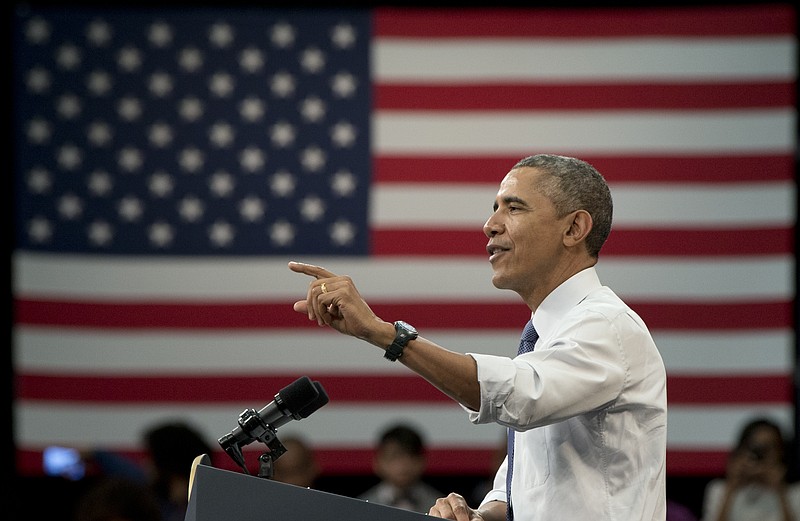COLUMBIA, S.C. -- The police situation in Ferguson, Missouri, was "oppressive and abusive," President Barack Obama said Friday, as he prepared to commemorate a half-century since the historic civil rights marches in Selma, Alabama.
"It turns out they weren't just making it up. This was happening," Obama said.
In his most expansive comments yet about the Justice Department's report on racial bias in Ferguson, Obama said it was striking that investigators merely had to look at email sent by police officials to find evidence of bias. He said the City of Ferguson now must make a decision about how to move forward.
"Are they going to enter into some sort of agreement with the Justice Department to fix what is clearly a broken and racially biased system?" Obama said.
The Justice Department's report cleared Darren Wilson, the white former Ferguson police officer who fatally shot 18-year-old Michael Brown, who was black and unarmed, while on duty in a St. Louis suburb in August. But in a separate report, federal investigators found patterns of racial profiling, bigotry and profit-driven law enforcement and court practices within the Ferguson Police Department. Ferguson city leaders are to meet with Justice Department officials in about two weeks to put forth an improvement plan.
The president himself was the subject of some of the racist emails from Ferguson police and municipal courts employees uncovered in the investigation. A 2008 email said Obama would not be president for long because "what black man holds a steady job for four years," while another depicted Obama as a chimpanzee.
Although Obama said he didn't think what happened in Ferguson was typical of the rest of the country, he added that it wasn't an isolated incident, either.
He called for communities to work together to address tensions between police and communities without succumbing to cynical attitudes that say "this is never going to change, because everybody's racist."
"That's not a good solution," Obama said. "That's not what the folks in Selma did."
Obama's comments at South Carolina's Benedict College came the day before he leads this weekend's 50th anniversary of "Bloody Sunday," when police beat scores of people who were marching from Selma to Montgomery, the state capital, to protest their lack of voting rights. The violent images broadcast on national television helped lead to passage of the Voting Rights Act of 1965.
Obama said the commemoration is as much about stirring young people to change as about honoring yesterday's legends, calling the push for "a fair and more just criminal justice system" part of the modern struggle.
"Selma is not just about commemorating the past, it's about honoring the legends who helped change this country through your actions today, in the here and now," Obama said at a town hall meeting. "Selma is now."
The visit was Obama's first to South Carolina as president. South Dakota and Utah are the only states he has not traveled to while in office.
